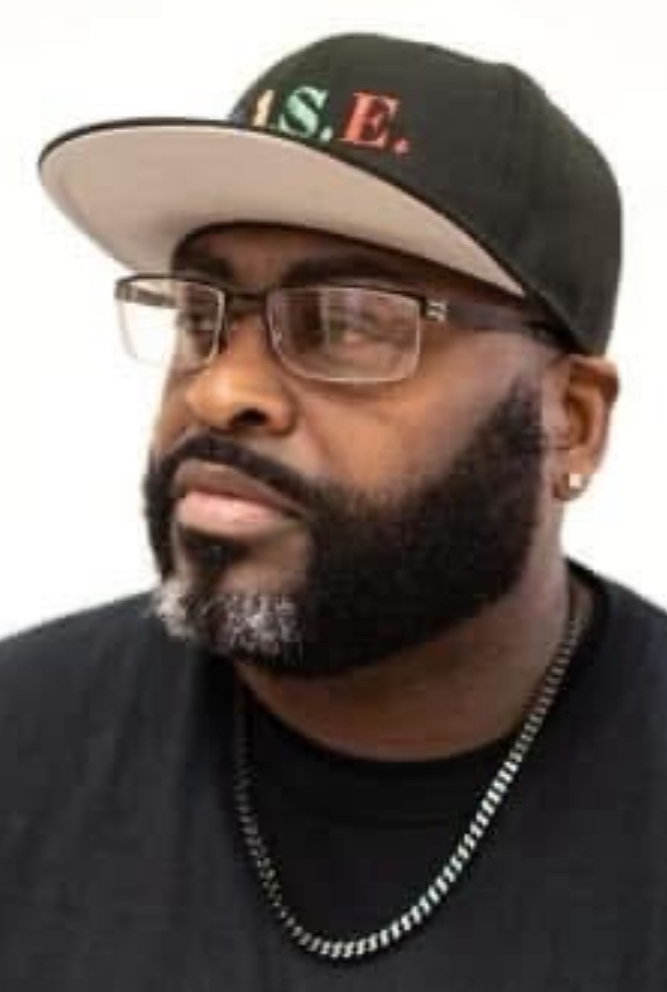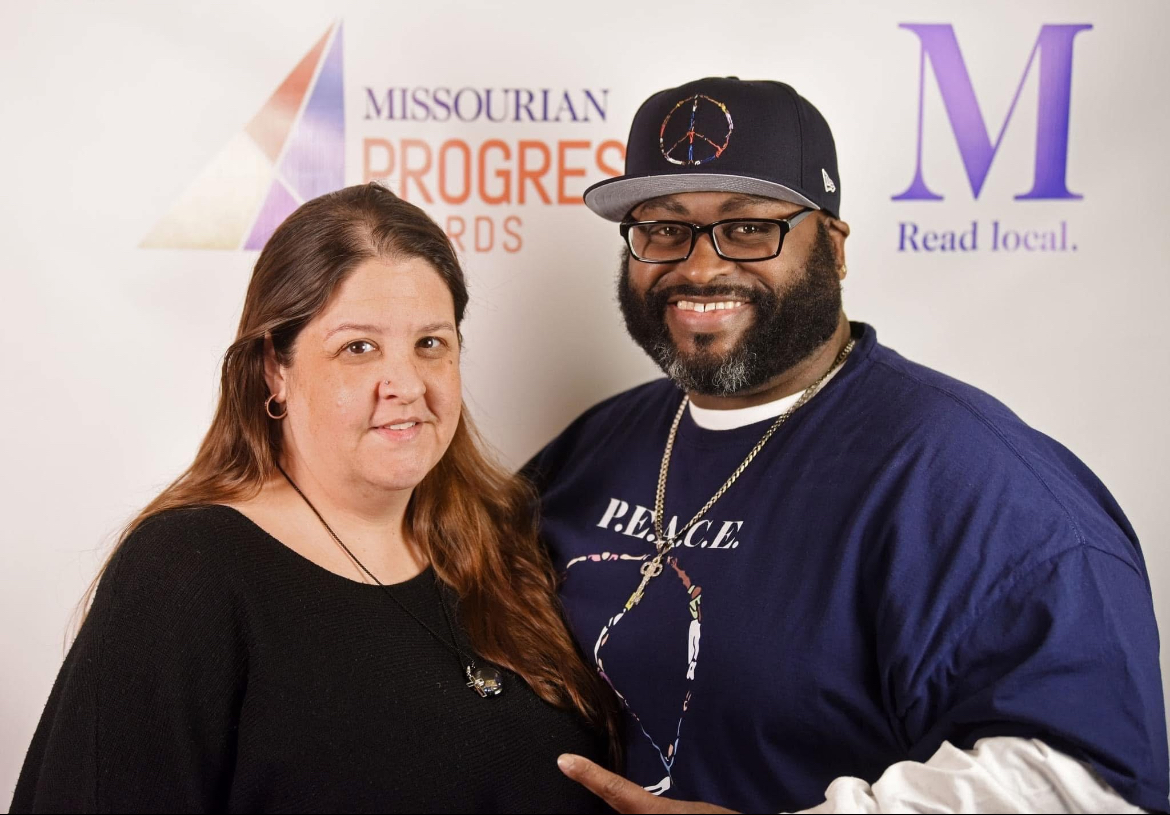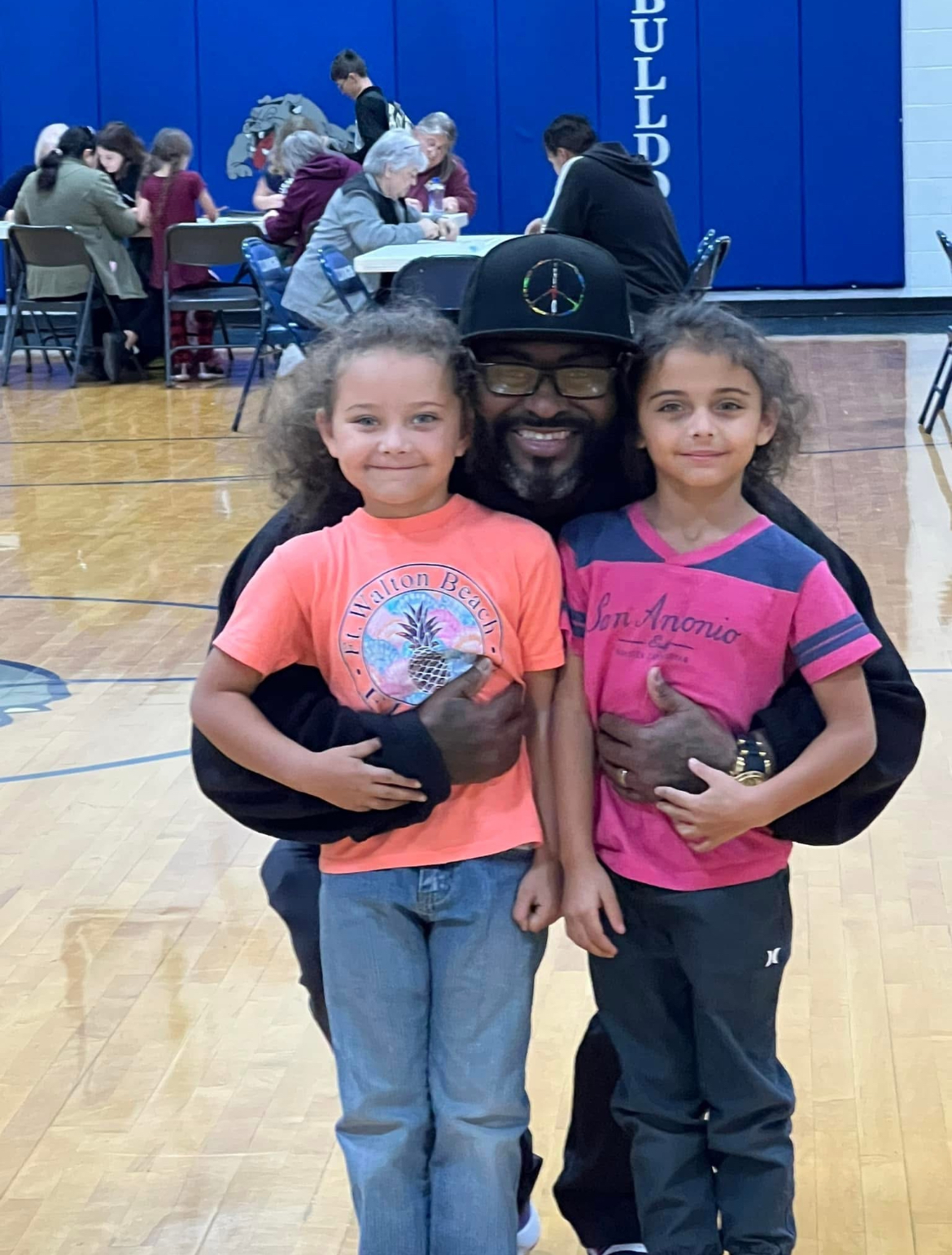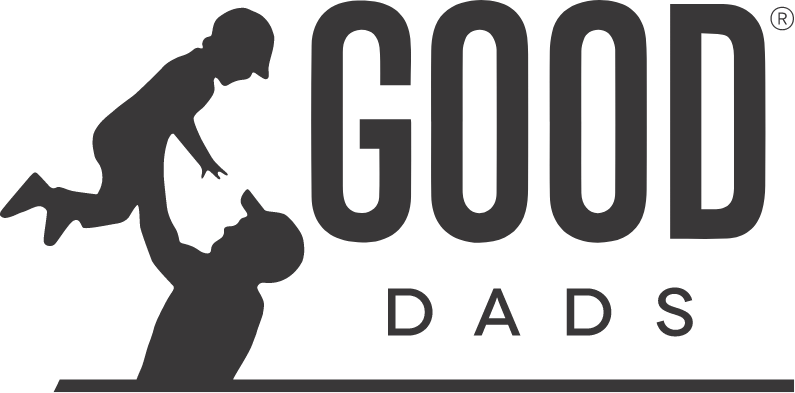Dora Gilreath is the communications assistant at Good Dads. She joined the team in 2024 and is pursuing a Bachelor’s degree in journalism and a minor in creative writing at Missouri State University. She loves reading, writing and anything related to theater.

Julian Jackman
Born and raised in Columbia, Missouri, Julian loves the community that comes with living in the area.
“For me to come back to do the work in the community is priceless,” Julian said of facilitating Good Dads classes. He said it means a lot “to help kiddos and their families and prevent them from going down the path I went down.”
Julian was a teenager when he had his first child. He admitted feeling lost and alone during that time. This is one of the reasons Julian seeks to help fathers—especially teen fathers—because he sees himself in them. He said he doesn’t want people to go through what he went through.
“I felt defeated,” he admitted. “No one to talk to, no one to understand. I didn’t want anyone else to feel that.”
With that feeling of defeat adding to the pressure of making ends meet, he started selling drugs. Soon he was in too deep, and Julian was incarcerated for almost two decades.
“Growing up, my childhood wasn’t drastically bad,” he said, “but we didn’t have everything I wanted in life. At a young age, I made a lot of bad decisions to bring money in the house. That progressed, and as I got older, it turned into something else. I didn’t have to keep doing it, but because of the choices I made, I spent 17 years in prison.”
During his incarceration, Julian knew he needed to turn things around. That’s when he created P.E.A.C.E., which stands for People Embracing Another Choice Effectively, an organization that seeks to educate while advocating for prison reform. P.E.A.C.E works with men, women and at-risk youth who are coming home from prisons.
Julian said he wrote P.E.A.C.E’s curriculum, facilitated classes, and published a curriculum on criminality all while in prison.

Through Julian’s work in the nonprofit sector, he hopes to give marginalized communities hope—and hope to families with one-parent households that need support from a male figure.
“If I get a chance to slow down and think about it, I hit the ground running,” he said. “I was blessed to start the nonprofit while I was incarcerated. Because I was able to do that, I went straight home doing this job.”
Julian wears many hats when it comes to community work. He is not only the executive director of P.E.A.C.E, he is also the Co-Executive director of Peace and Hope for Youth, another Columbia nonprofit; the owner of Agents of Change LLC, a company contracted with Columbia public schools to mentor teenage dads in high schools; and the Co-owner of RISE initiative (Responsible Intelligent Scholars Excelling), which works with at-risk teens and is contracted with the juvenile justice center and Columbia public schools to continue mentoring with youth in the community.
Julian and his wife, Whitney, are also the owners of JuWhit Investments, where they purchase properties for use as men’s post-incarceration reentry centers.
As far as Julian’s work for Good Dads, he helps by both facilitating classes and working with program participants via case management. His area of outreach includes the Columbia and Fulton areas, primarily collaborating with two Fresh Start Sober Living Programs and The Re-entry Opportunity Center, both in Columbia. He has even taken what he’s learned as a Good Dads facilitator and applied it to his yearslong work with teen dads classes.
Julian learned about the Good Dads curriculum last year. He recalled thinking the program was unique, something he hadn’t seen before. He particularly liked Good Dads’ lessons on self-esteem and father’s rights.
“I went to Good Dads training,” he said. “For a while, I was using the Good Dads curriculum, and I wasn’t getting paid for it. I was using the curriculum, and I wasn’t even thinking about Good Dads employing me and making it bigger than it is.”
He took his Good Dads work a step farther when he began case management. After meeting with the regional director, D’Markus Thomas-Brown, Julian’s relationship with the nonprofit began to grow. Taking notes with the class participants, making sure they’re doing alright, and offering resources and visitations is important to Julian.
In his view, the definition of facilitation is to make things easier, and that’s what he does: provide information and make it easier to understand.

There are so many benefits to being a Good Dads facilitator, Julian said. To Julian, “seeing the guys get knowledge, and then applying it to their lives, and then getting to see how rewarding that knowledge is to take them places,” is one of his favorite parts about being a facilitator.
Julian has faced several challenges as a facilitator, and one of the biggest ones is seeing men with a defeated attitude. Sometimes, when dads first come to the program, they arrive with the mindset that they are not a good dad. To combat this, Julian implores dads to change their mindset.
“For me, the biggest challenges are the guys that feel like there isn’t anything to help them,” he said.
One of the methods Julian uses for helping dads is by relating to them. By providing a quick summary of his life story, including who he is, what he’s going through, and his feelings, it, according to Julian, “opens up the door.”
Some men even say, “I feel like you’re in my mind right now,” whenever Julian talks with them, because Julian can truly relate to their experiences. A lot of what he went through, the dads are going through as well.
“Empathy takes on a whole new meaning,” he said. “Open up with each other. It opens up everything and you learn from one another. It takes a village, and iron sharpens iron. They leave with resources and information and that helps them after a meeting.”
Julian provided a great piece of advice to current and future facilitators: practice what you preach.
“If you’re telling men, ‘Here’s the trajectory of your life, and I’m going to help you with that,’ you have to be an open book …Everything that you’re doing, make sure to apply it, so when you give it to someone else, they see it.”
To fathers who may be struggling, Julian said that asking for help is never something to be ashamed of.
“Never be afraid to ask for help,” he said. “Don’t be too proud to ask for help. It’s actually a manly thing to do—to say you need help and be able to seek it.”
As far as the future goes for Good Dads, Julian hopes to bring even more dads into his classes.
“I’m hoping to see classes with 20 men or better,” he said. “It’s a free class! You just have to show up.”
By serving as a mentor and a gate-opener for resources in the community he loves, Julian’s playing an important role in creating a new cycle for at-risk fathers.
“You need a foundation as a father,” he said. “These guys start seeing that and hearing that as an example. Faith-wise, a lot of the guys are Christians. You have to be a good example. You might be the only Bible someone is reading. Give a hand-up, not a handout. Same level, same information.”
Julian’s support system consists of his wife, Whitney, his three adult children and twin grandchildren. He says his family provides him with the motivation to do everything he does.


